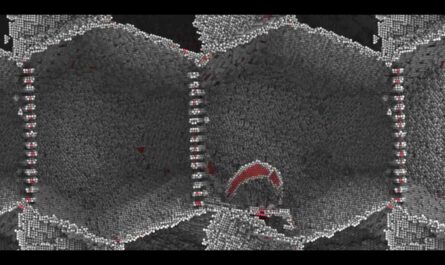New research published in the journal Immunity suggests that “exhausted” immune cells in the brain may play a role in the development and progression of Alzheimer’s disease. The study, conducted on both mice and humans, found that microglia, the immune cells of the brain, wither away as Alzheimer’s takes hold, and that a specific gene variant called APOE4 may mediate these changes.
The researchers discovered that older mice and those with the APOE4 variant had exhausted immune cells in their brains, which they referred to as “terminally inflammatory microglia” or TIM. These cells have lost their ability to efficiently remove plaque from the brain, a hallmark of Alzheimer’s disease.
The study also shed light on the potential interaction between the Alzheimer’s drug aducanumab and immune cells in the brain. When mice with the APOE4 variant were treated with aducanumab, the exhausted cells regained some functionality. This suggests that the drug may have a positive effect on the brains of individuals with the APOE4 gene variant.
The APOE gene has three variants: APOE2, APOE3, and APOE4. Previous research has shown that these variants can influence the body’s response to various diseases, including cancer and COVID. The APOE4 variant, in particular, has been strongly linked to an increased risk of developing Alzheimer’s disease and is carried by approximately 20% of the population.
To better understand how the APOE4 gene variant influences the brain in Alzheimer’s disease, the researchers spent four years developing mouse models that express human APOE variants. They observed that mice with the APOE4 variant had a higher presence of TIM compared to other variants. This finding was also supported by the analysis of human brain tissue from individuals with the APOE4 gene variant.
The study’s findings suggest that APOE4 may increase the risk of Alzheimer’s by impairing the function of the brain’s immune cells. The researchers believe that rehabilitating these exhausted cells could be a potential therapeutic target for the disease. If the immune system can be boosted to remove plaque efficiently, it may help protect the brain from Alzheimer’s.
In addition to investigating the signaling molecules that lead to the formation of exhausted immune cells, the researchers will also explore the presence of these cells in other brain diseases, such as tumors and Parkinson’s. It is possible that inflammation plays a role in the accumulation of exhausted immune cells, indicating their involvement in multiple brain diseases.
While the findings provide valuable insights, further research is needed to fully understand the role of exhausted immune cells in Alzheimer’s disease and to develop effective therapies targeting these cells. Nonetheless, the study opens up new avenues for potential treatments and highlights the importance of the immune system in the development and progression of Alzheimer’s.
*Note:
1. Source: Coherent Market Insights, Public sources, Desk research
2. We have leveraged AI tools to mine information and compile it




